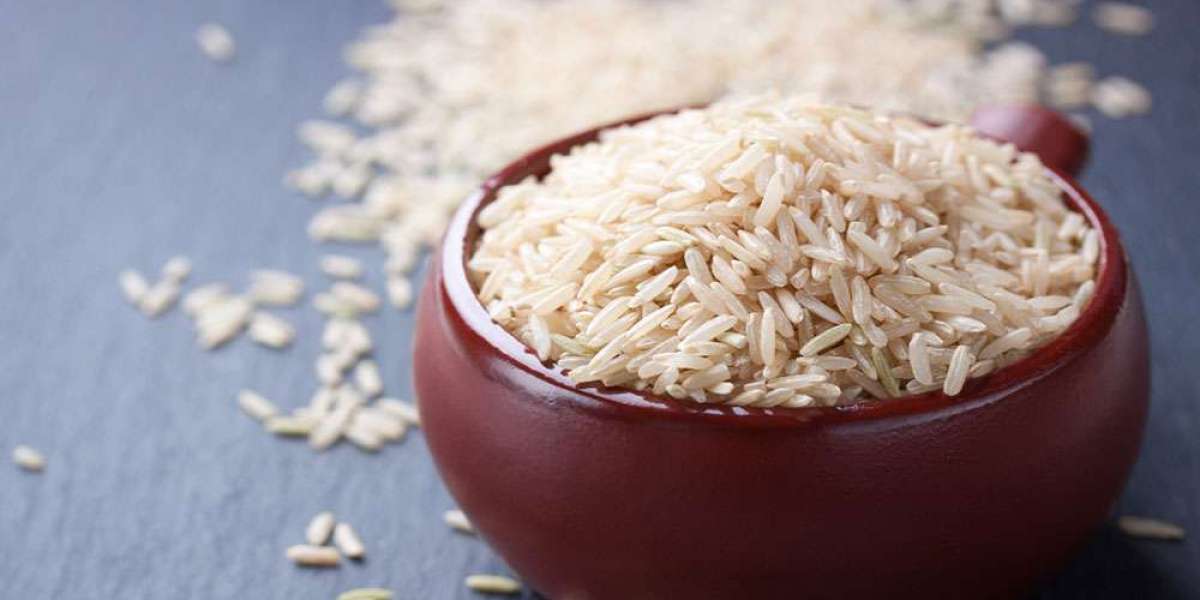Introduction
Basmati rice, renowned for its unique aroma, long grains, and exceptional flavor, has a cherished place in kitchens around the globe. This premium rice variety, primarily grown in the Indian subcontinent, is not just a staple in many households but also a significant export commodity. In this blog, we delve into the journey of basmati rice from the paddy fields to global markets, highlighting the leading basmati rice exporter in the world.
What Makes Basmati Rice Special?
Basmati rice stands out for its distinctive qualities:
- Aromatic Appeal: The unique fragrance of basmati rice sets it apart from other rice varieties.
- Grain Length: It has longer grains that elongate further upon cooking.
- Texture and Flavor: Basmati rice is known for its delicate, fluffy texture and nutty flavor.
The Heartland of Basmati Rice
Basmati rice is predominantly grown in the fertile plains of India and Pakistan. The climatic conditions, soil quality, and traditional farming techniques in these regions contribute to the superior quality of basmati rice. Among these, India is the largest producer and exporter of basmati rice, accounting for a significant share of the global market.
Leading Basmati Rice Exporter: India
Production Hubs
India's basmati rice production is concentrated in the northern states of Punjab, Haryana, Uttar Pradesh, and Jammu & Kashmir. These regions offer the ideal conditions for cultivating high-quality basmati rice.
Top Exporting Companies
India is home to several leading basmati rice exporters, including:
- LT Foods Ltd.: Known for its flagship brand Daawat, LT Foods Ltd. is a prominent name in the basmati rice industry.
- KRBL Ltd.: The company behind the famous India Gate brand, KRBL Ltd., has a substantial presence in both domestic and international markets.
- Amira Nature Foods Ltd.: Amira is another significant player, offering a variety of basmati rice products to global consumers.
- Shri lal mahal Group: Shri Lal Mahal is a leading exporter of premium Basmati rice, renowned for its superior quality and rich aroma. With decades of expertise, they bring authentic, flavorful Basmati rice to kitchens worldwide. Experience the tradition and excellence that make Shri Lal Mahal a trusted name in the global rice market. Elevate your meals with the finest Basmati rice.
Export Destinations
Indian basmati rice is exported to over 140 countries, with major markets including:
- Middle East: Saudi Arabia, Iran, Iraq, and the UAE are among the largest importers of Indian basmati rice.
- Europe: The UK, Germany, and France have a growing demand for basmati rice.
- North America: The USA and Canada are also significant importers.
Quality Assurance and Standards
Indian basmati rice exporters adhere to stringent quality control measures to ensure the highest standards. Certifications such as ISO, HACCP, and BRC are commonly held by leading exporters, ensuring the rice meets international food safety and quality standards.
The Export Process
Farming and Harvesting
The journey of basmati rice begins in the paddy fields, where farmers use traditional and modern techniques to cultivate the crop. The harvesting process is critical, as it impacts the quality and aroma of the rice.
Milling and Processing
After harvesting, the rice undergoes milling and processing. This involves removing the husk and bran layers to produce white rice, followed by polishing to enhance its appearance. Advanced milling technologies ensure minimal breakage and maximum yield.
Packaging and Shipping
Basmati rice is then packaged in various quantities, from retail packs to bulk shipments. Exporters use high-quality packaging materials to preserve the rice's freshness and aroma during transit. Efficient logistics and shipping practices ensure timely delivery to global markets.
Challenges in the Basmati Rice Export Industry
Quality Control
Maintaining consistent quality across large export volumes is a significant challenge. Exporters invest in state-of-the-art testing laboratories and quality control systems to address this.
Regulatory Compliance
Different countries have varying regulations regarding food imports. Exporters must stay updated with these regulations and ensure compliance to avoid shipment rejections and delays.
Market Competition
The global basmati rice market is highly competitive, with exporters from India, Pakistan, and other countries vying for market share. Innovation in packaging, branding, and marketing strategies is crucial to staying ahead in the competition.
Future Prospects
The demand for basmati rice is expected to grow steadily, driven by increasing consumer awareness of its health benefits and culinary versatility. Indian exporters are well-positioned to capitalize on this trend, with ongoing investments in technology, quality assurance, and market expansion.
Conclusion
India's dominance as the leading basmati rice exporter in the world is a testament to the country's rich agricultural heritage, superior quality standards, and robust export infrastructure. As global demand for basmati rice continues to rise, Indian exporters are set to play an even more significant role in bringing this exquisite rice variety








